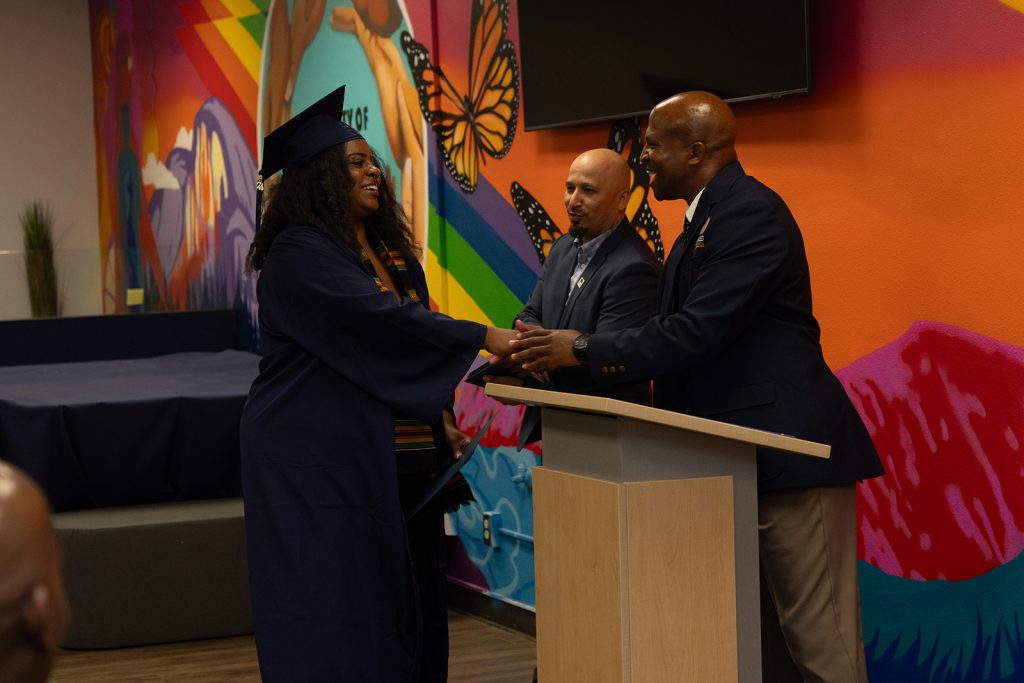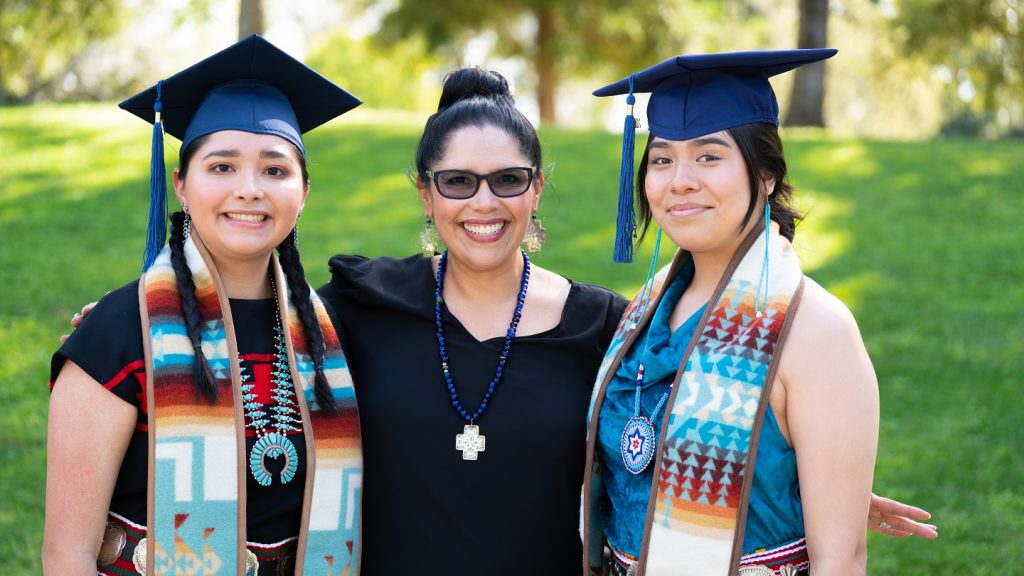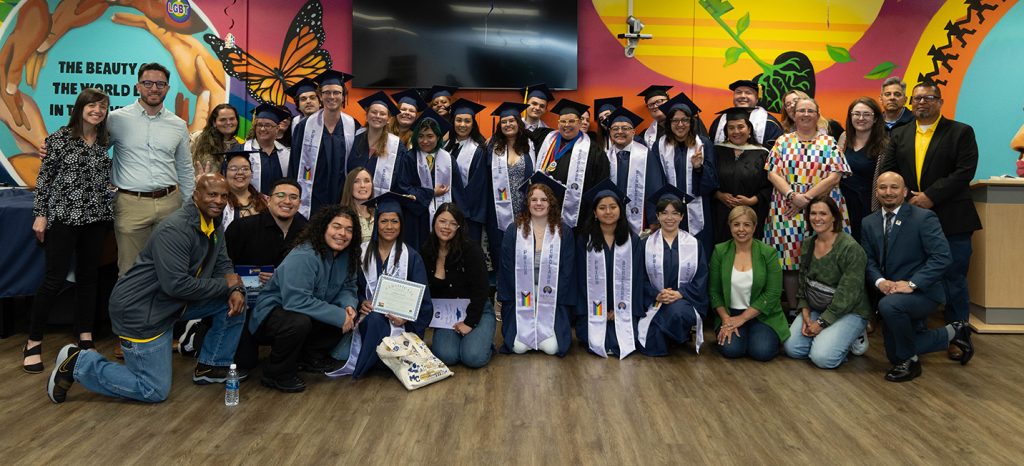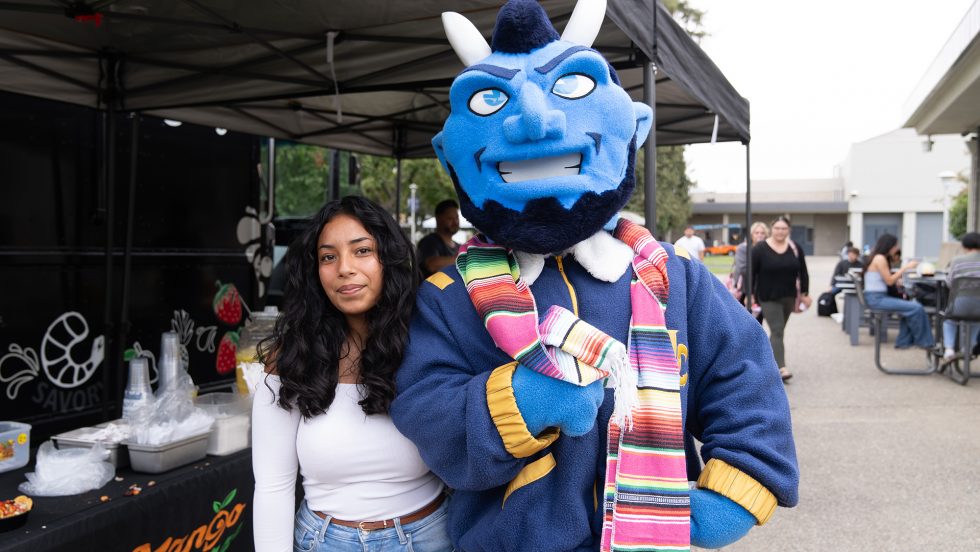
Black Students
In the immediate aftermath of the pandemic, Merced College was not the only educational institution that found Black students had suffered disproportionately. Numbers dropped as some Black students had to quit school for lack of finances, drop out with failing grades, or even avoid enrolling due to the chaos.
To attack the challenge anew, the college had to leave the campus.
As part of the new “Merced College on the Road” initiative, Assistant Director of Student Equity Louis Foy has already visited Merced and Sequoia high schools in the past month, He’ll move on to Buhach Colony, El Capitan, Atwater and Golden Valley the rest of the year to promote the college’s Black student programs that aim to increase enrollment, retention and graduation rates.
Foy is also visiting local churches, partnering with the Black Parallel School Board through Merced City Schools, and attending NAACP events to share the same information.
“If Black students arrive on campus knowing they can join groups like Umoja and A2MEND (African American Male Education Network Development), they’re more likely to join and benefit from the focused efforts to help them succeed,” Foy said.
After one full year of Umoja and A2MEND, which is a mentoring program, the number of Black student graduates has tripled. The Umoja coalition will host a conference for current Merced College students as well as local 11th- and 12th-graders for Black Student Success week next April.

Native Americans
Foy and Extended Opportunity Programs and Services (EOPS) Counselor Isabel O. Cambridge are developing new activities for Native American and Asian and Pacific Islander (AAPI) students.
Native American Heritage Month in November should be a bigger, more relevant event than usual. In 2024, Native Americans are celebrating 100 years since being given U.S. citizenship. They’re planning interactive workshops and streamlining ways to help students meet their basic needs.
“And it’ll be the same for our AAPI students,” Foy said. “I’ve connected with EOPS Counselor Ngia G. Vang to plan an AAPI conference in early 2025. It won’t be just games and giveaways. We want to spark conversations.”
To that end, EOPS will sponsor a panel discussion featuring Native Americans speakers on November 7. They’ll talk about their lives and educational journeys. The panel will include Cambridge, Director of Admissions and Records Jeanette Martin, and UC Merced student Anaya Cambridge.

LGBTQIA+
For our LGBTQIA+ community, there is a new Peer Support Network. EOPS Equity Counselor Cimmaron Ruiz said the college is also presenting more Safe Zone Training workshops this semester for faculty and staff to learn how to create more inclusive environments in classrooms and campus spaces for LGBTQIA+ students.
Ruiz said they’re also partnering with the campus HEARTS Club to host a series of mental health and wellness workshops focused on building resilience and community.
Ruiz has also spearheaded the work to expand Extreme Registration to reach underserved, low-income communities, undocumented students, economically impacted students and communities of color. The college has been working with local leaders to set up registration events at community centers and high schools throughout the county.
Associated Students
The Associated Students of Merced College are working with The Equity Hub in the student union to celebrate Multicultural Day on October 22.
“We’ve always had our own events dealing with mental health and world cultures, but we’re partnering up this year to make a bigger event for a bigger impact in spreading awareness,” said Alexander Salazar, ASMC president for 2024-25.
ASMC and the Hub sponsored a Hispanic Heritage Month event on Sept. 18 that featured banda music and food. You can expect more such collaborations.
“No matter who you are or how you look, no one should feel left out in any way here at Merced College,” Salazar said. “None of us should be afraid to be who we are. Whatever we’re doing with ASMC, you should see people of different genders, cultures—a mix of people—and still feel comfortable.”
Equity Plan
The 2024-25 academic year is also the final year of the college’s 2022-25 Student Equity Plan. The plan was required by the California Community Colleges system to show how each school could improve success rates of disproportionately impacted students.
“The goal was to reduce equity gaps and remove educational obstacles,” Serena said.
Serena said the college has completed about 75% of the Plan. However, when the CCC welcomed a new chancellor—Sonya Christian—in 2023, the change in leadership meant schools changed how they monitor their diversity efforts.
Now the 116 community colleges in California align their DEI goals with the system’s new Vision 2030 plan. To make that shift in good faith, Merced College is now using the Vision Aligned Reporting (VAR) structure established by the Chancellor’s Office to track and evaluate their work.
“We submit data annually, which includes an overview of the funding allocated to support these student groups,” Serena said. “This reporting structure allows us to stay accountable and transparent in our approach to fostering equity, ensuring that resources are being directed where they can have the greatest impact.”
Graduation Recognition
When spring graduation rolls around again in May, the college plans to continue holding special graduation recognition ceremonies for LGBTQIA+ students, Black students, and Hispanic students, and for the first time in 2025, a special ceremony for Asian/Pacific Islander students.
While all students participate in the traditional commencement ceremonies held at the Merced and Los Banos campuses in May, the smaller recognition ceremonies hold special meaning for the students and families involved, as well as the faculty and classified professionals who have supported those students during their time at Merced College.
“They’re a lot more personal for our students and staff,” Serena said of the special graduation ceremonies. “They turned out so well. They’re more intimate, and more people can connect and celebrate.”



